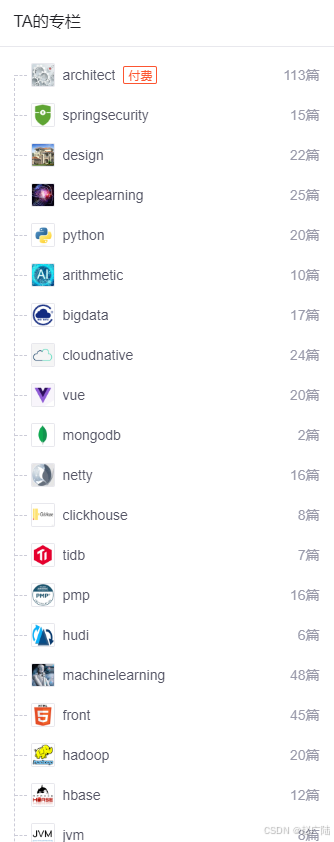本文主要是介绍面向对象设计(OOD)的SOLID 原则,希望对大家解决编程问题提供一定的参考价值,需要的开发者们随着小编来一起学习吧!
SOLID 原则是面向对象设计(OOD)中的一组核心概念,旨在促进软件的可维护性、灵活性和可扩展性。下面为每个原则提供一个简单的代码示例来阐明其意义和应用方式。
S:单一职责原则(Single Responsibility Principle)
单一职责原则指一类应该只有一个改变的理由,即该类只负责一件事。
示例:一个日志记录类,仅负责日志记录功能。
class Logger:def log(self, message):print(f"Log message: {message}")# 使用
logger = Logger()
logger.log("This is a log message.")O:开闭原则(Open/Closed Principle)
开闭原则是指软件参与活动扩展开放,对修改关闭。这意味着应该能够增加功能而修改现有代码。
示例:使用抽象基类来允许添加新功能而不修改现有代码。
from abc import ABC, abstractmethodclass Shape(ABC):@abstractmethoddef area(self):passclass Rectangle(Shape):def __init__(self, width, height):self.width = widthself.height = heightdef area(self):return self.width * self.heightclass Circle(Shape):def __init__(self, radius):self.radius = radiusdef area(self):return 3.14 * self.radius * self.radius# 使用
shapes = [Rectangle(3, 4), Circle(5)]
for shape in shapes:print(shape.area())L: 里氏替换原则 (Liskov Substitution Principle)
里氏替换原则指子类应能够替换其基类而不影响程序的功能。
示例:确保子类完全实现父类的方法。
class Bird:def fly(self):print("The bird is flying")class Duck(Bird):def fly(self):print("The duck is flying")class Ostrich(Bird):def fly(self):raise Exception("Ostriches cannot fly")# 使用
birds = [Duck(), Ostrich()]
for bird in birds:try:bird.fly()except Exception as e:print(e)I:接口隔离原则(Interface Segregation Principle)
接口隔离原则指不得强迫客户依赖于它们不使用的接口。
示例:使用专用的接口而不是一个大而全的接口。
class Printer:def print_document(self, document):print("Printing document:", document)class Stapler:def staple_document(self, document):print("Stapling document:", document)class Photocopier(Printer, Stapler):pass# 使用
photocopier = Photocopier()
photocopier.print_document("Document1")
photocopier.staple_document("Document1")D:依赖倒置原则(Dependency Inversion Principle)
依赖倒置原则是指高层模块不应依赖于低层模块,两者都应依赖于抽象;抽象不应依赖于细节,细节应依赖于抽象。
示例:使用抽象类来定义依赖关系,而不是具体类。
from abc import ABC, abstractmethodclass Button(ABC):@abstractmethoddef on_press(self):passclass Light:def turn_on(self):print("The light is on")class LightSwitch(Button):def __init__(self, light):self.light = lightdef on_press(self):self.light.turn_on()# 使用
light = Light()
switch = LightSwitch(light)
switch.on_press()这篇关于面向对象设计(OOD)的SOLID 原则的文章就介绍到这儿,希望我们推荐的文章对编程师们有所帮助!







